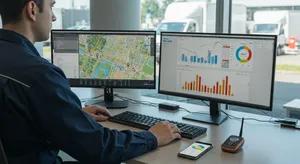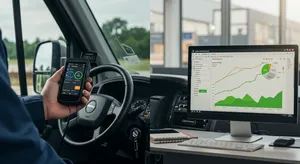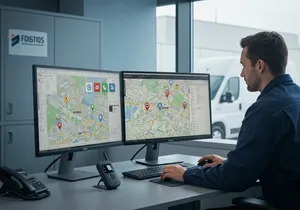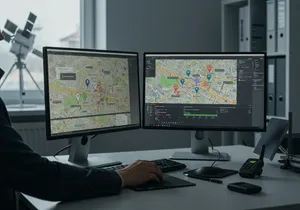Operational Efficiency Benefits
- Real-time fleet visibility enabling instant decision-making and resource optimization
- Route optimization reducing travel time by 15-25% through intelligent path planning
- Dispatch efficiency improvements streamlining job assignments and resource allocation
- Automated reporting eliminating manual data collection and administrative overhead
- Performance monitoring identifying bottlenecks and operational improvement opportunities
- Resource utilization optimization maximizing vehicle and driver productivity
- Communication enhancement enabling better coordination between office and field teams
- Workflow automation reducing manual processes and increasing operational speed










